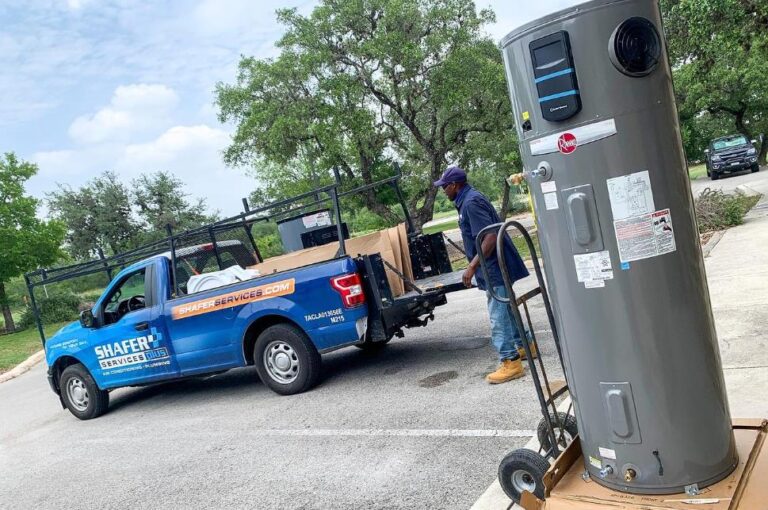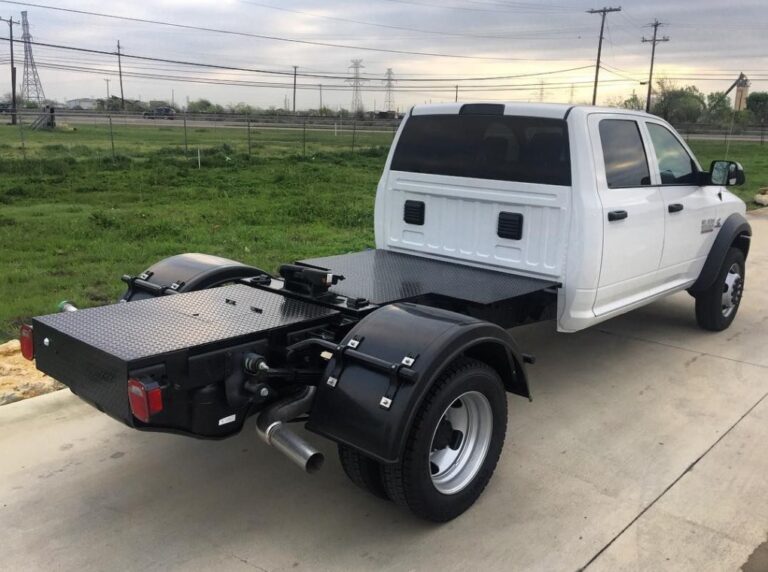How To Start A Trucking Company In Georgia? A Complete Breakdown
Are you looking for How To Start A Trucking Company In Georgia? Starting a trucking company in Georgia is a promising business venture. This state, known for its robust economy and strategic location, offers numerous opportunities for transportation businesses.
If you’re looking to enter the trucking industry in Georgia, understanding the essentials is crucial. From legal requirements to market analysis, this guide offers a comprehensive approach to launching your trucking company successfully.
Key Takeaways
- Understand legal requirements and registration processes in Georgia.
- Gain insights on market analysis and business planning.
- Learn about fleet acquisition and maintenance.
- Discover strategies for effective marketing and client acquisition.
- Get informed on financial management and growth strategies.
How To Start A Trucking Company In Georgia?
To start a trucking company in Georgia, the first step is to establish a business entity. You can choose from several types, such as an LLC, Corporation, or Sole Proprietorship.
Each has its advantages and legal implications. Next, you need to obtain the necessary licenses and permits, including a Commercial Driver’s License (CDL) and a Motor Carrier Authority Number.

Register your business with the Georgia Department of Revenue and ensure compliance with the Federal Motor Carrier Safety Administration (FMCSA).
Legal Requirements and Registration
In Georgia, legal compliance is key. Register your business name and structure with the Georgia Secretary of State. Obtain an Employer Identification Number (EIN) from the IRS for tax purposes. Secure your USDOT and MC numbers for interstate transport. Also, familiarize yourself with Georgia’s specific trucking regulations, insurance requirements, and safety standards.
Business Entity Selection
Choosing the right business entity impacts your liability and tax obligations. An LLC is popular among small business owners for its limited liability and flexibility. A Corporation suits those seeking external funding, while a Sole Proprietorship is simple but offers less personal liability protection.
Market Analysis and Business Planning
Conducting thorough market research is crucial. Identify your niche in the Georgia trucking market. Are you focusing on long-haul interstate routes or local deliveries? Analyze your competition and potential client base. This information forms the backbone of your business plan, outlining your business goals, operational strategies, and financial projections.
Identifying Your Niche
In the diverse Georgian trucking sector, finding your niche is vital. It could be specialized freight services, refrigerated transport, or standard dry van hauling. Each niche has unique demands and competition levels. Research and select one that aligns with your resources and market needs.
Crafting a Business Plan
Your business plan is a roadmap for success. It should detail your company structure, services offered, marketing strategies, operational plans, and financial forecasts. A well-crafted business plan is also crucial for securing funding or investors.
Fleet Acquisition and Management
Starting a trucking business in Georgia means investing in a reliable fleet. Decide whether to buy or lease your trucks. Consider factors like upfront costs, maintenance responsibilities, and long-term financial implications. Implement a robust fleet management system to track vehicle maintenance, fuel efficiency, and driver safety.

Buying vs. Leasing Trucks
Purchasing trucks requires significant capital but offers ownership and long-term cost benefits. Leasing, on the other hand, has lower initial costs and includes maintenance services. Your decision should align with your business model and financial capacity.
Implementing Fleet Management Systems
Effective fleet management is essential. Utilize technology for tracking vehicle maintenance, optimizing routes, and monitoring driver behavior. This not only ensures regulatory compliance but also enhances operational efficiency.
Marketing and Client Acquisition
Effective marketing strategies are crucial for attracting clients. Develop a strong brand presence online and offline. Attend industry events and network with potential clients.
Utilize digital marketing, including SEO and social media, to reach a wider audience. Building relationships with local businesses can also secure steady contracts.
Building a Strong Brand
Your brand represents your company’s values and services. Create a professional logo, develop a user-friendly website, and maintain an active social media presence. Consistent branding across all platforms increases recognition and trust among potential clients.
Networking and Relationship Building
Networking is a powerful tool in the trucking industry. Attend local and national industry events, join trucking associations, and engage with local businesses. Building strong relationships can lead to long-term contracts and referrals.
Financial Management and Growth
Managing finances effectively is the cornerstone of a successful trucking business. Set up efficient accounting systems, budget wisely, and plan for taxes. Explore financing options for expansion, like business loans or investor funding. Continuously analyze your financial performance and adjust your strategies for sustainable growth.
Setting Up Accounting Systems
An efficient accounting system helps track expenses, revenues, and profits. Consider hiring an accountant or using accounting software tailored for trucking businesses. Regular financial analysis aids in making informed business decisions.
Planning for Expansion
As your business grows, consider expansion strategies. This could involve adding more trucks to your fleet, exploring new markets, or diversifying your services. Secure funding through loans or investors, and ensure your operational infrastructure can support this growth.
What Is Needed To Start A Trucking Company In Georgia?
To start a trucking company in Georgia, you need to complete several key steps. First, establish a legal business entity like an LLC, Corporation, or Sole Proprietorship.
Register your business with the Georgia Secretary of State and obtain an Employer Identification Number (EIN) from the IRS.

Acquire a Commercial Driver’s License (CDL) if you plan to drive, and obtain a Motor Carrier Authority Number for interstate operations. Secure adequate insurance, including liability and cargo insurance, and comply with all Georgia-specific and FMCSA regulations.
Additionally, set up a business plan outlining your services, operational strategy, and financial projections.
How Much Money Should I Have To Start A Trucking Company?
The amount of money needed to start a trucking company varies greatly. Initial costs include the price of trucks, which can range from $15,000 for a used truck to over $100,000 for a new one, per vehicle.
Additional costs involve insurance, which can be several thousand dollars annually, licensing and permits, and operational expenses like fuel and maintenance.
A safe estimate would be to have at least $100,000 to $150,000 to cover the initial setup and operating costs for the first few months. However, this can vary based on the size of your fleet, type of trucks, and business model.
How Do I Start A Small Trucking Business?
Starting a small trucking business requires careful planning and execution. Begin by creating a detailed business plan that covers your niche, target market, and financial projections.
Legally establish your business, register with the necessary state and federal authorities, and obtain all required licenses and permits. Purchase or lease your trucks, and ensure they meet all safety and environmental regulations.

Develop a client acquisition strategy, focusing on building a strong brand and network. Also, implement a sound operational strategy, including effective fleet management, driver recruitment, and efficient route planning.
How Many Trucks Do You Need To Start A Trucking Company?
The number of trucks needed to start a trucking company depends on your business model and goals. Many successful trucking companies have started with just one or two trucks.
Starting small allows you to manage your operational costs better and grow your business organically. As your client base and revenue grow, you can consider expanding your fleet. It’s important to balance the number of trucks with the volume of work you have to ensure profitability.
Conclusion
Starting a trucking company in Georgia is a journey filled with challenges and opportunities. By understanding the legal framework, conducting thorough market research, managing your fleet efficiently, employing effective marketing strategies, and maintaining robust financial management, you can pave the way for a successful and profitable business.
Remember, success in the trucking industry requires persistence, strategic planning, and a deep understanding of the market dynamics. With the right approach and dedication, your trucking company in Georgia can thrive in this competitive industry.
Top FAQ’s
How can I ensure my trucking company grows successfully?
Focus on efficient operations, quality customer service, and strategic marketing. Continuously analyze your market and adapt to changes. Consider diversifying services or expanding your fleet as your business grows. Effective financial management is also key to sustainable growth.
What kind of maintenance is required for a trucking fleet?
Regular maintenance includes engine checks, tire inspections, brake system checks, and ensuring all lights and signals are functional. Implement a preventive maintenance schedule to minimize downtime and extend the life of your vehicles.
How can I find clients for my trucking company in Georgia?
Network within the industry, attend trade shows and connect with local businesses. Online marketing, including a professional website and social media presence, can also attract clients. Building partnerships and offering competitive rates can help in gaining long-term contracts.
How do I comply with safety regulations in Georgia’s trucking industry?
Compliance involves adhering to the Federal Motor Carrier Safety Administration (FMCSA) regulations, which include regular vehicle inspections, maintenance, driver qualifications, hours of service, and alcohol and drug testing programs.

Welcome to the exhilarating world of Matt Rex, a professional car racer turned renowned vehicle enthusiast. Immerse yourself in his captivating blog as he shares heart-pounding adventures, expert reviews, and valuable insights on cars, trucks, jets, and more. Fuel your passion for speed and discover the beauty of vehicles through Matt’s engaging stories and meticulous expertise. Join the ever-growing community of enthusiasts who find inspiration and expert advice in Matt Rex’s blog—a digital hub where the thrill of speed meets the pursuit of knowledge.






![Air Dryer Malfunction Volvo Truck [Causes + Fixed]](https://www.turbochaos.com/wp-content/uploads/2024/01/Air-Dryer-Malfunction-Volvo-Truck-768x640.jpg)
